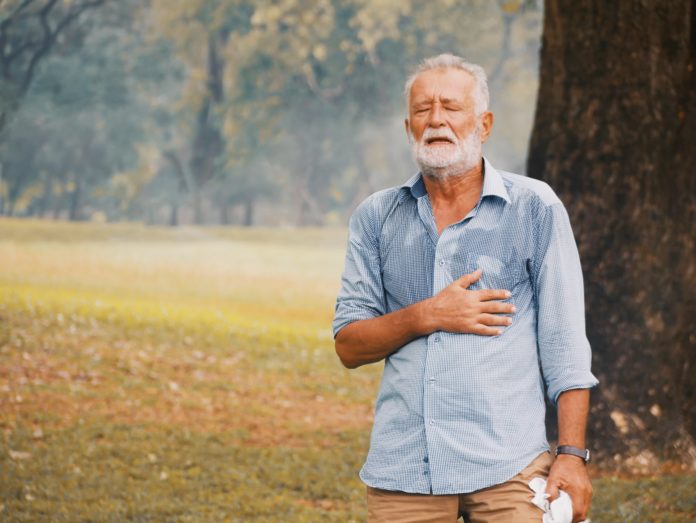Overview
Extreme heat can cause specific illnesses in the human body. Hyperthermia is one of them. Hyperthermia in people affects the functioning of vital organs, and lack of medical attention may even cause death.
This blog covers every information about hyperthermia.
What is Hyperthermia?
Hyperthermia is when people experience abnormally high body temperature. It occurs when the body absorbs or generates more heat than it can release. Prolonged exposure to the sun or strenuous physical activities may cause this. The condition can be categorized as severe if the body temperature rises above 104 F or 40 degrees C. Hyperthermia typically occurs during summers and requires emergency medical intervention.
What are the different types of hyperthermia?
Hyperthermia involves several heat illnesses. They are:
- Heat exhaustion: In this type, the body temperature rises above 104 F, and the chances of getting a heat stroke are high.
- Cramps: Due to excessive sweating, the body may lose electrolytes and salts essential for the body’s functioning. It may lead to muscle cramps in different body parts and is the least severe of all types of hyperthermia.
- Heat rash: During humid weather, people sweat a lot, and some develop red-coloured pimples or blisters in different areas of their bodies. This skin irritation is heat rash and typically appears in areas under the breasts, neck, or elbow crease.
- Heat stress: Some jobs demand working under high temperatures. For example, people working in mines, construction workers, and firefighters may face heat stress, culminating in heat stroke.
- Heatstroke: This is the most severe type, which is fatal. The temperature may even rise above 106 F.
What are the symptoms?
Some of the symptoms of hyperthermia are:
- High body temperature
- Throbbing headache
- The skin may turn red
- Irritability
- Slurred speech
- Seizures
- Rapid breathing
- Nausea
- Increased pulse rate
What are the causes of hyperthermia?
Hyperthermia may occur due to different reasons. Getting exposed to the sun for a long time is a significant cause. It leads to rising core body temperature and occurs mainly in older people and people who are chronically ill. Another reason for hyperthermia is increased body temperature due to intense physical activity in hot weather. If the person is not used to the temperature and does strenuous activities, they may experience this.
Wearing excess clothes during hot weather prevents the body from sweating and cooling down. It may also lead to hyperthermia. Intake of alcohol may affect the cooling of the body. Sometimes lack of fluid intake dehydrates the body, which may also lead to hyperthermia. Even the intake of some medications heats the body.
Who is at more risk for hyperthermia?
Some people are more prone to hyperthermia than others. Some of them are:
- Those who consume an excessive amount of alcohol
- Have an electrolyte imbalance in the body
- People who work in a hot atmosphere
- People who wear tight clothing during summers
- People with chronic medical conditions (heart, lungs, kidney, or liver issues)
- People who have problems with their ability to sweat (like cystic fibroid)
- People under the age of four and over the age of 65
What are the complications of hyperthermia?
Hyperthermia is a condition that requires medical intervention as early as possible. If it is not taken care of, it may lead to damage to vital organs and may even lead to the person’s death. Even though the person seems fine after giving some first aid techniques, it is advisable to take them to the health care provider to confirm they are safe.
What is Malignant Hyperthermia?
Some people are genetically allergic to specific combinations of medications. Administering those medications to such people may lead to hyperthermia. This type of hyperthermia is called malignant hyperthermia. After surgical procedures, their body temperature may increase due to their incompatibility with anaesthesia or other medications. So this has to be considered while planning surgery or other medical procedures.
How is hyperthermia treated?
The immediate treatment for hyperthermia is moving the person to a cooler place. Immersing the patient in cool water or placing ice packs in the armpits, neck, or groin lowers the temperature. Additionally, practising evaporative cooling can be effective. It is a technique where doctors mist cool water on the person, and the air is blown all over the body. Doctors may stop all kinds of medications during this time.
The health care provider may administer IV fluids and recommend washing the body cavity with cool water.
What are the ways to prevent hyperthermia?
There are ways to prevent hyperthermia to a good extent. The primary method is to avoid prolonged exposure to the sun. Avoid intense physical activities under the sun and drink plenty of water. It is advisable to wear light clothing while going out in the sun. Try to stay in ventilated areas during summers. Sports people do an intense workout and have to drink enough water and other essential liquids to handle the heat.
Trainers always suggest doing a warm-up before an intense workout. It is essential to make the body acclimatize with the training. Similarly, if a person is planning to do strenuous physical activities, it is crucial to building the body’s ability to withstand the stress and heat of the action. The person can start practising light work to prepare the body for the actual work.
Conclusion
Hyperthermia is a heat illness due to excessive physical activities in humid conditions. It usually affects small children or elderly ones and requires medical attention at the earliest. People who indulge in strenuous outdoor exercises and others who are prone to this condition should take optimal care to prevent the occurrence of hyperthermia. Avoid sugary and alcoholic beverages during summers. If people have issues with vital organs like the heart or liver, they should consult the healthcare provider before deciding to do any physical activities.


















